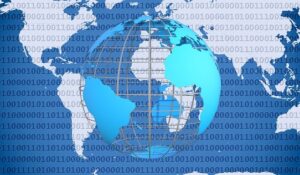
Private Internet Access (PIA) plays a pivotal role in safeguarding the digital activities of environmental activists, scientists, and journalists worldwide. In an era where online presence can expose them to surveillance and cyber threats, PIA's encryption and IP masking features provide critical protection for their identities and sensitive data. Its global server network helps users evade geographic restrictions and surveillance, which is particularly important for those operating in environments with press freedom concerns. PIA's no-logs policy and strong encryption standards are crucial defenses against data retention and the exposure of confidential information. By adopting best practices such as secure VPN settings, regular software updates, and multi-factor authentication, journalists can enhance their security further when using PIA. This combination of user precautions and PIA's dedicated service ensures the protection of sources, maintains the confidentiality of identities, and contributes to the integrity and progress of environmental advocacy and research on a global scale. The use of PIA for Journalists Worldwide underscores its indispensable value in upholding privacy, transparency, and accountability within the field of environmental conservation.
In an era where environmental stewardship is paramount, both activists and scientists delicately balance transparency with the imperative need for privacy. The digital realm presents unique challenges, with data vulnerability and identity exposure posing significant risks. This article underscores the critical role of Private Internet Access (PIA) in safeguarding the sensitive work of these professionals worldwide. We explore best practices for maintaining privacy through VPNs, supported by case studies that illustrate their indispensable protection against threats. Join us as we navigate the intersection of online security and environmental advocacy.
- The Imperative of Online Anonymity for Environmental Activists and Scientists
- Utilizing Private Internet Access to Safeguard Data and Identity
- Best Practices for Journalists Worldwide to Maintain Privacy with VPNs
- Case Studies: How VPNs Have Protected the Work of Environmental Advocates and Researchers
The Imperative of Online Anonymity for Environmental Activists and Scientists

In an era where environmental advocacy and scientific research often attract scrutiny and even threats, maintaining online anonymity becomes paramount for both activists and scientists. The digital footprint left by individuals engaged in sensitive environmental work can expose them to risks ranging from surveillance to targeted cyber-attacks. This is particularly relevant given the increasing importance of digital communication in sharing research findings, coordinating efforts, and mobilizing public support. Utilizing a reliable anonymizing browser like Private Internet Access for Journalists Worldwide ensures that these individuals can navigate the web securely, protecting their privacy and safeguarding sensitive data from potential adversaries. This tool encrypts internet traffic and masks IP addresses, thereby creating a shield against digital tracking and eavesdropping, which is indispensable in maintaining the integrity of both personal safety and the confidentiality of environmental initiatives.
The commitment to online anonymity through services like Private Internet Access for Journalists Worldwide also fosters an environment where environmental activists and scientists can collaborate without fear of reprisal or suppression of their work. In a global context where dissenting opinions are often stifled, the ability to communicate freely and securely is not just a matter of operational security but a fundamental right that underpins the very essence of democratic societies. By adopting such protective measures, these professionals can continue their critical work without compromising their identities or exposing their associates to undue risk, thus upholding the transparency and accountability necessary for meaningful environmental progress.
Utilizing Private Internet Access to Safeguard Data and Identity

Environmental activists and scientists often handle sensitive data that, if exposed, could lead to personal harm or compromise critical research efforts. Utilizing Private Internet Access (PIA) serves as a pivotal tool for these individuals, providing robust encryption and a secure connection that masks their digital footprints. PIA’s global server network enables users to switch between servers in different countries, effectively bypassing geographic restrictions and the surveillance often associated with certain regions. This adaptability is crucial when journalists worldwide operate in environments where internet activity can be monitored or censored. With PIA, activists and scientists can rest assured that their communications and data remain private, safeguarding both their identities and the integrity of their work against potential threats. The anonymizing browser offered by Private Internet Access is not just a privacy solution; it’s a critical component for maintaining the security and confidentiality of sensitive environmental research and advocacy efforts in a digital age where information can be both a weapon and a shield. By leveraging PIA, these professionals can navigate the web with confidence, knowing that their online presence is concealed and their data is encrypted, allowing them to focus on their mission without fear of reprisal or exploitation.
Best Practices for Journalists Worldwide to Maintain Privacy with VPNs

When journalists worldwide delve into sensitive investigations, maintaining privacy is paramount. In an era where digital footprints can be as revealing as overt surveillance, private internet access becomes a crucial defense for reporters. Private Internet Access (PIA) stands out as a robust VPN solution tailored for journalists operating in environments where press freedom is contested. To effectively shield their communications and research from prying eyes, journalists must adopt best practices that complement PIA’s features.
Firstly, it is vital to select a reputable VPN provider like Private Internet Access, known for its no-logs policy and strong encryption standards. This selection minimizes the risk of data retention that could potentially compromise the journalist’s anonymity. Secondly, journalists should configure their VPN settings meticulously, ensuring that all data transmitted is encrypted, and the most secure protocols are employed. Regular updates to the software must be enabled to protect against vulnerabilities. Additionally, employing multi-factor authentication adds another layer of security for journalist’s accounts. By integrating these best practices with Private Internet Access for Journalists Worldwide, reporters can fortify their digital presence, ensuring that their sources remain protected and their identity secure. This proactive approach to privacy maintenance is essential in the face of increasing cyber threats and surveillance concerns.
Case Studies: How VPNs Have Protected the Work of Environmental Advocates and Researchers

In recent years, Virtual Private Networks (VPNs) have become indispensable tools for environmental activists and scientists alike, particularly those engaged in sensitive or high-stakes research. For instance, a case study from Brazil highlighted how local conservationists were able to use VPN services like Private Internet Access to securely share critical data on endangered species without fear of surveillance or hacking. This data included GPS coordinates of protected areas, which, if compromised, could have led to illegal logging and poaching in those regions. Similarly, researchers in Indonesia utilized VPNs to monitor the impact of climate change on marine biodiversity. Their work, conducted from vessels patrolling marine sanctuaries, was safeguarded against cyber threats, ensuring the integrity of their findings. This anonymized communication allowed them to collaborate with international partners without revealing sensitive locations or methods, thus protecting both their research and the ecosystems they were studying.
Another pivotal case involves journalists in the Amazon rainforest who relied on Private Internet Access to report on deforestation activities. Their use of encrypted VPN connections allowed them to safely gather and disseminate information without exposing their sources or locations, which would otherwise have been targeted by interested parties with opposing agendas. The anonymity provided by the VPN was crucial in maintaining the journalists’ safety and the credibility of their reports. These examples underscore the importance of VPNs in safeguarding the digital footprints of environmental advocates and researchers, enabling them to work without the threat of surveillance or cyber-attacks, and ensuring that their vital work for the preservation of our planet can continue unimpeded.
In conclusion, the digital landscape poses significant threats to the safety and integrity of environmental activists and scientists. The necessity of maintaining online anonymity cannot be overstated, as it shields both data and identities from potential adversaries who may seek to undermine their work. Utilizing services like Private Internet Access (PIA) for journalists worldwide is a prudent step towards upholding privacy, enabling these professionals to communicate and collaborate securely. The case studies highlighted within this article underscore the tangible benefits of employing VPNs in protecting the vital contributions of those dedicated to safeguarding our environment. As the interconnectedness of our world grows, so too must the vigilance with which we guard our digital footprints. It is a collective responsibility to ensure the preservation of both privacy and the planet.







